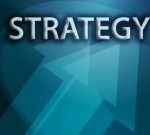 The majority of us are sticklers for finances at work, but often disregard our personal finance at home. For those who are not accountants, the process of keeping financial records and ensuring all financial items are squared away can be quite boring and often confusing. Instead of ignoring your personal finance until a problem arises, take the initiative today!
The majority of us are sticklers for finances at work, but often disregard our personal finance at home. For those who are not accountants, the process of keeping financial records and ensuring all financial items are squared away can be quite boring and often confusing. Instead of ignoring your personal finance until a problem arises, take the initiative today!
The most important aspect of your personal finance is undoubtedly your credit. Your credit score, often a mystical number of much confusion, is critical to your success in the financial realm. Without a respectable credit score, you will be unable to borrow money or obtain a home or vehicle loan. This number can literally hold you back from completing your goals and can severely limit your future.
The credit in your name has a direct bearing on the credit number. Thus people who do not use their credit cards properly and have huge bills running in their names lend a bad streak to their credit. A point to be noted is that it is not the amount you charge but it is the amount that is kept on credit that poses the threat of being harmful. It is important to keep a check on the monthly statement and you should endeavor to pay it in full each month.
In today’s society, identity theft is often a problem. If someone steals your identity, they can wreck your finances, ruin your credit, and tarnish your good name and reputation. In order to prevent identity theft, carefully monitor all your financial statements and safe guard your personal information.
The attitude of most people towards money is spending today and saving later, thus relegating saving for a later part of their life. But this habit catches them unawares in the later part of their life where they get jolted with the rude shocks of a fast approaching retirement date and a non-existent retirement fund. So do not wait for tomorrow, start saving today by putting some portions of your income in the retirement fund account.
One of the best ways to handle the finances is a budget. This is the best way to keep a tab on the finances and keeping the spending in control. When you create a budget you need to make two columns, one meant for the incomes and the second for expenditures. You need to mention all the items of expenditure in the expenses column such as rent or mortgage payment, car payment, insurance, utilities, and food. Whatever is left after deducting all this from the income is the monthly excess that of course can be used in different ways.
It’s a good idea to consult an accountant if you are not sure about setting your personal finance records straight. This person will help you correct any potential problems and ensure nothing goes wrong in the future.
The world of finance is fascinating. There’s no need to be scared of it. Just keep your finances straight and you will be able to build, or rebuild, your credit score.
About the Author
David Neehly is an independent Investment writer for “Investment Finances” at http://InvestmentFinances.com You’ll find all the latest Investment news there.
 If you think your bank is costing you too much money, then now is the time to look at ways your bank can help you save money rather than spend it. Although there will always be bank charges and fees, there are ways to save money using banks and make the most of their services. Here are some tips about how to cut down on bank costs and save yourself money.
If you think your bank is costing you too much money, then now is the time to look at ways your bank can help you save money rather than spend it. Although there will always be bank charges and fees, there are ways to save money using banks and make the most of their services. Here are some tips about how to cut down on bank costs and save yourself money.

 Most of us have done it at one time or another: lent money to a friend or family member. The loan is usually done in order to help a loved one meet a goal or to take care of a pressing need. We choose money lending because we want to help. Unfortunately, all too often extending a personal loan can lead to a negative situation. Here are a few points to consider when you are faced with the possibility of floating a personal loan to someone you care about.
Most of us have done it at one time or another: lent money to a friend or family member. The loan is usually done in order to help a loved one meet a goal or to take care of a pressing need. We choose money lending because we want to help. Unfortunately, all too often extending a personal loan can lead to a negative situation. Here are a few points to consider when you are faced with the possibility of floating a personal loan to someone you care about. The majority of us are sticklers for finances at work, but often disregard our personal finance at home. For those who are not accountants, the process of keeping financial records and ensuring all financial items are squared away can be quite boring and often confusing. Instead of ignoring your personal finance until a problem arises, take the initiative today!
The majority of us are sticklers for finances at work, but often disregard our personal finance at home. For those who are not accountants, the process of keeping financial records and ensuring all financial items are squared away can be quite boring and often confusing. Instead of ignoring your personal finance until a problem arises, take the initiative today! Experiencing a life of effortless bliss, abundance and prosperity is not out of the realm of fictional books. You to deserve to have it all and why not. Who would in their right mind want to have the stress, struggles and anxiety associated with financial concerns through lack. So how do we increase the wealth and abundance in our life. Here are four things you need to know that will increase your wealth and abundance.
Experiencing a life of effortless bliss, abundance and prosperity is not out of the realm of fictional books. You to deserve to have it all and why not. Who would in their right mind want to have the stress, struggles and anxiety associated with financial concerns through lack. So how do we increase the wealth and abundance in our life. Here are four things you need to know that will increase your wealth and abundance.